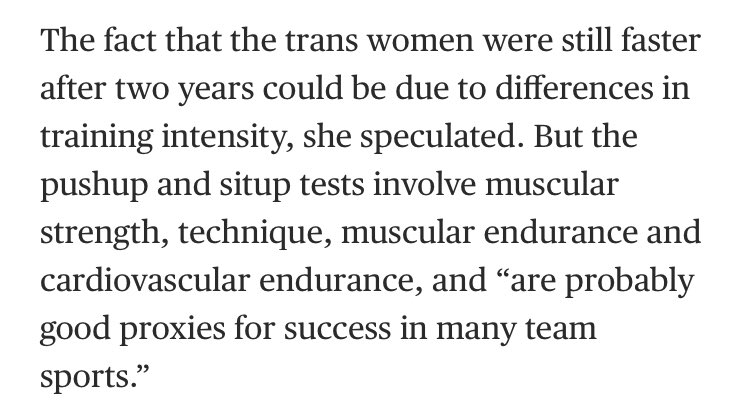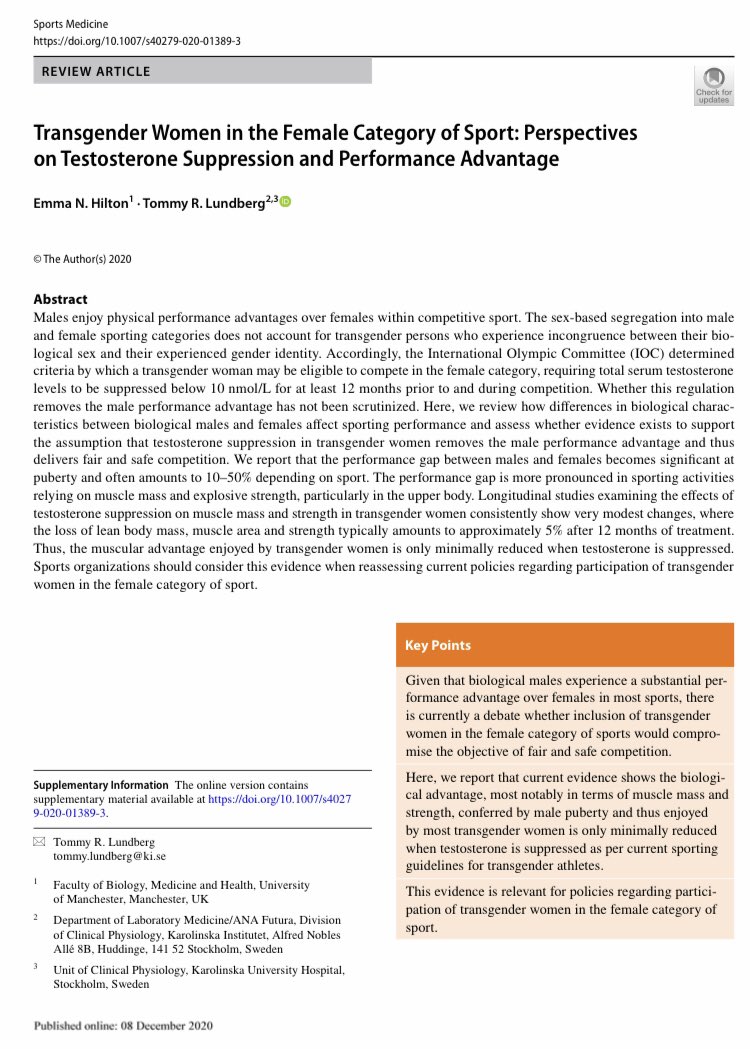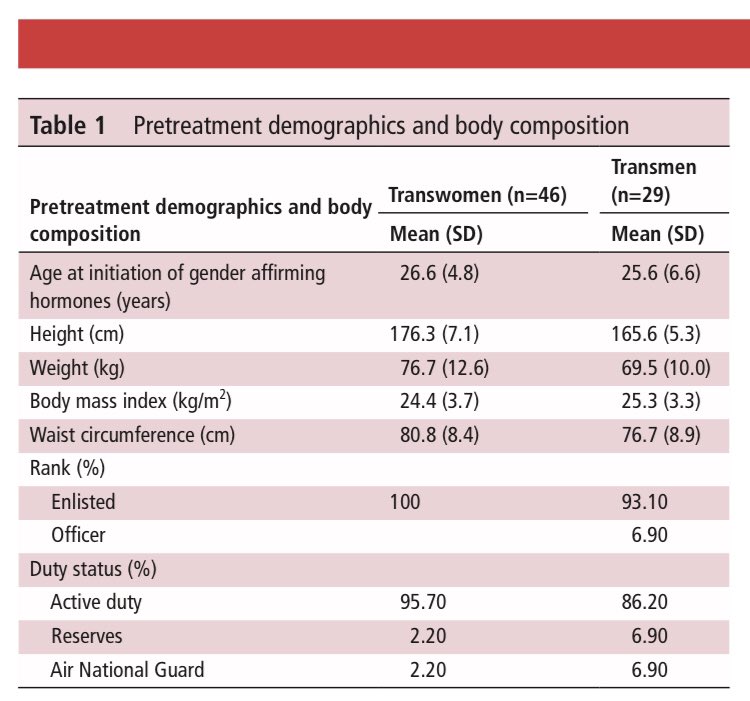
Our letter, The Reality of Sex, has been published today in the Irish Journal of Medical Science.
@egipam @SwipeWright @davecurtis314
link.springer.com/article/10.100…
@egipam @SwipeWright @davecurtis314
link.springer.com/article/10.100…
‘Human sex is an observable, immutable, and important biological classification; it is a fundamental characteristic of our species, foundational to many biology disciplines, and a major differentiator in medical/health outcomes.’
‘Public discourse around sex increasingly seeks to deny basic facts of human biology.’
‘We call upon authors and editors to resist non-scientific pressures to suppress honest and accurate discussion of these matters, particularly in the field of medicine where diagnosis, prognosis and treatment can depend on a patient’s sex.’
And @suzanne_moore may be interested.
‘One recent example has been the treatment of Suzanne Moore at The Guardian following her attempts to discuss sex-related issues.’
‘One recent example has been the treatment of Suzanne Moore at The Guardian following her attempts to discuss sex-related issues.’
This letter was written before the NEJM Perspective below. Otherwise, we would have, of course, refuted the nonsense statement that ‘sex designations on birth certificates offer no clinical utility.’
nejm.org/doi/full/10.10…
nejm.org/doi/full/10.10…
Here is an excellent overview of Nature antics by the equally excellent Andy Lewis @lecanardnoir
quackometer.net/blog/2020/09/t…
quackometer.net/blog/2020/09/t…
Thank you, of course, to the Irish Journal of Medical Science @IrishJMedSci for publishing our letter!
• • •
Missing some Tweet in this thread? You can try to
force a refresh







